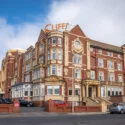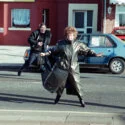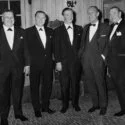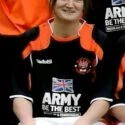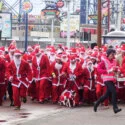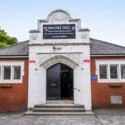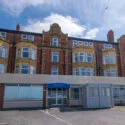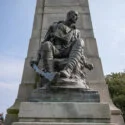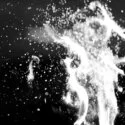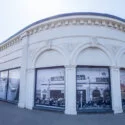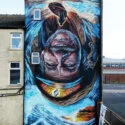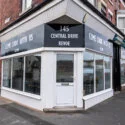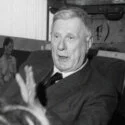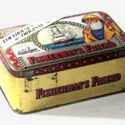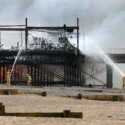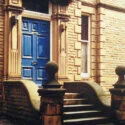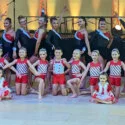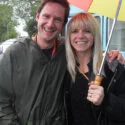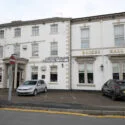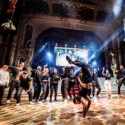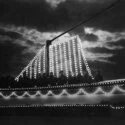From the age of 6, Roy Harper lived in St Annes-on-Sea but he was born in 1941 in Rusholme, a suburb of Manchester. His mother, Muriel, died three weeks after giving birth. He was brought up by his father and stepmother, with whom he became disillusioned because of his stepmother’s religious beliefs (although they reconciled in 1980, just before her death). His anti-religious views would later become a familiar theme within his music.
English folk rock singer, songwriter, and guitarist. He has released 22 studio albums (and 10 live ones) across a career that stretches back to 1966. As a musician, Harper is known for his distinctive fingerstyle playing and lengthy, lyrical, complex compositions, reflecting his love of jazz and the poet John Keats. He was the lead vocalist on Pink Floyd’s “Have a Cigar.”
Harper began writing poems when he was 12. At the age of 13, he began playing skiffle music with his younger brother David (“Davey” on the album Flat Baroque and Berserk), as well as becoming influenced by blues music. At 14 he formed his first group (De Boys) with his brothers David and Harry. Harper was educated at King Edward VII School, Lytham St Annes, then a grammar school (background image), and left at the age of 15 (1956) to join the Royal Air Force to follow an ambition to be a pilot. After two years Harper rejected the rigid discipline and feigned madness to obtain a military discharge, as a result receiving an electroconvulsive therapy treatment at Princess Mary’s RAF Hospital, Wendover. After being discharged from there, he spent one day inside the former Lancaster Moor Mental Institute before escaping. These experiences would be recalled in “Committed”, a song on Harper’s debut album, Sophisticated Beggar. From around 1961 he busked around North Africa, Europe and London for a few years.
Harper’s influence has been acknowledged by Led Zeppelin, Jimmy Page, Robert Plant, Pete Townshend, Kate Bush, Pink Floyd, and Ian Anderson, of Jethro Tull, who said Harper was his “primary influence as an acoustic guitarist and songwriter.” Neil McCormick of The Daily Telegraph described him as “one of Britain’s most complex and eloquent lyricists and genuinely original songwriters… much admired by his peers”. Across the Atlantic, his influence has been acknowledged by Seattle-based acoustic band Fleet Foxes, American musician and producer Jonathan Wilson, and Californian harpist Joanna Newsom, with whom he has also toured. In 2005, Harper was awarded the MOJO Hero Award, and in 2013 a Lifetime Achievement Award at the BBC Radio 2 Folk Awards. His most recent album, Man and Myth, was released in 2013. In 2016, Harper celebrated his 75th birthday by performing concerts in Clonakilty, Birmingham, Manchester, London, and Edinburgh.
Harper’s first album, Sophisticated Beggar, was recorded in 1966 after he was spotted at Les Cousins and signed to Strike Records. The album consisted of Harper’s songs and poetry backed by acoustic guitar, recorded with a Revox tape machine by Pierre Tubbs and with contributions from English guitarist Paul Brett. Columbia Records recognised Harper’s potential and hired American producer Shel Talmy to produce Harper’s second album, Come Out Fighting Ghengis Smith, which was released in 1968. The 11-minute track “Circle”, “a soundscape of Harper’s difficult youth”, was notable for marking a widening of his musical style away from the more traditional side of contemporary folk music heard at the time. Harper had an interest in traditional folk but did not consider himself a bona fide member of the folk scene.
Pink Floyd’s 1975 release Wish You Were Here saw Harper sing lead vocals on the song “Have a Cigar”. Roger Waters intended to record the part himself, but had strained his voice while recording “Shine On You Crazy Diamond” and David Gilmour declined to sing. Harper was recording his album HQ in Studio 2 of Abbey Road at the same time as Pink Floyd were working in Studio 3; learning of the band’s dilemma, Harper offered to sing the lead. The song is one of only three songs by Pink Floyd not sung by one of their permanent members (the others being “The Great Gig in the Sky” and “Hey, Hey, Rise Up!”). David Gilmour returned the favour by appearing on HQ, along with Harper’s occasional backing band, ‘Trigger’ (Chris Spedding, Dave Cochran, Bill Bruford and John Paul Jones). The single “When an Old Cricketer Leaves the Crease”, taken from HQ, is one of Harper’s best known songs. Harper also co-wrote the song “Short and Sweet” with Gilmour for Gilmour’s first solo record, David Gilmour (released in 1978), and the song subsequently appeared on his own album The Unknown Soldier (released in 1980).
There’s much to say about Roy Harper. For more, click on his website link below.
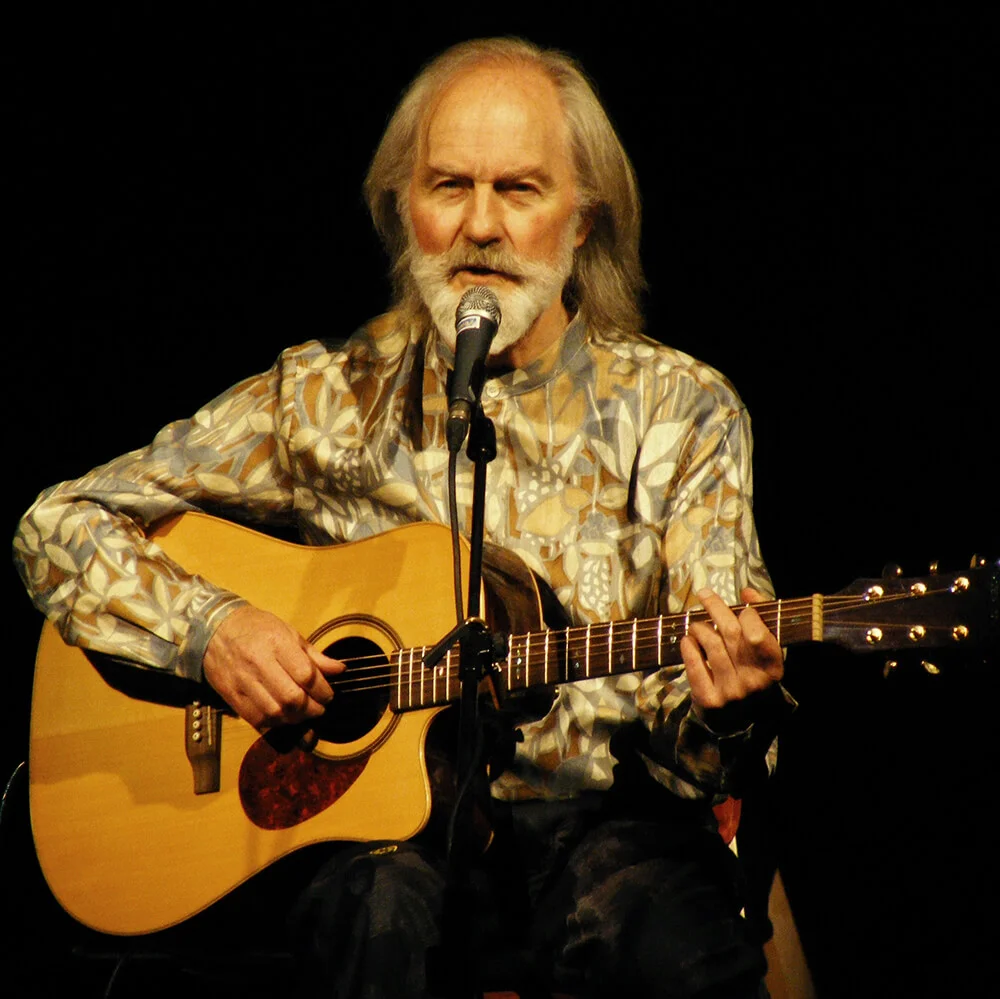
Roy Harper performing at the Palace Theatre, Manchester, 18 September 2010.
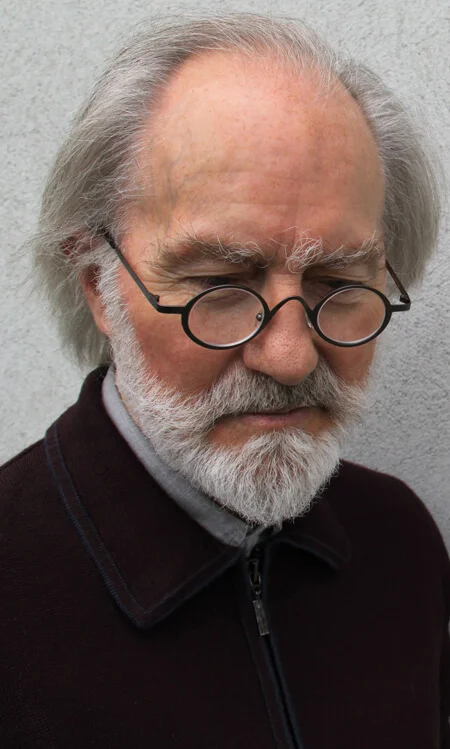
Harper in 2011
Featured Image © TrharpCC BY-SA 3.0
Additional Images © Man Alive!CC BY 2.0
Background Image © Alamy
Text source: from hiswebsite

